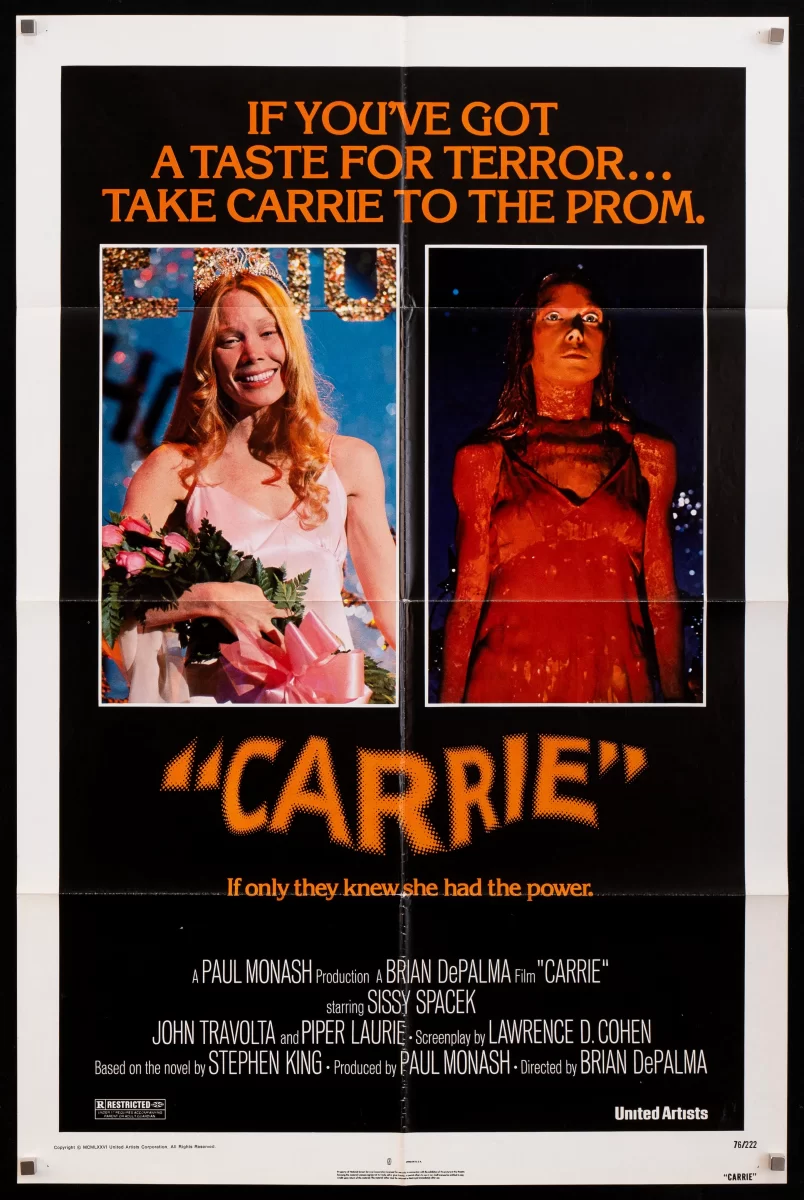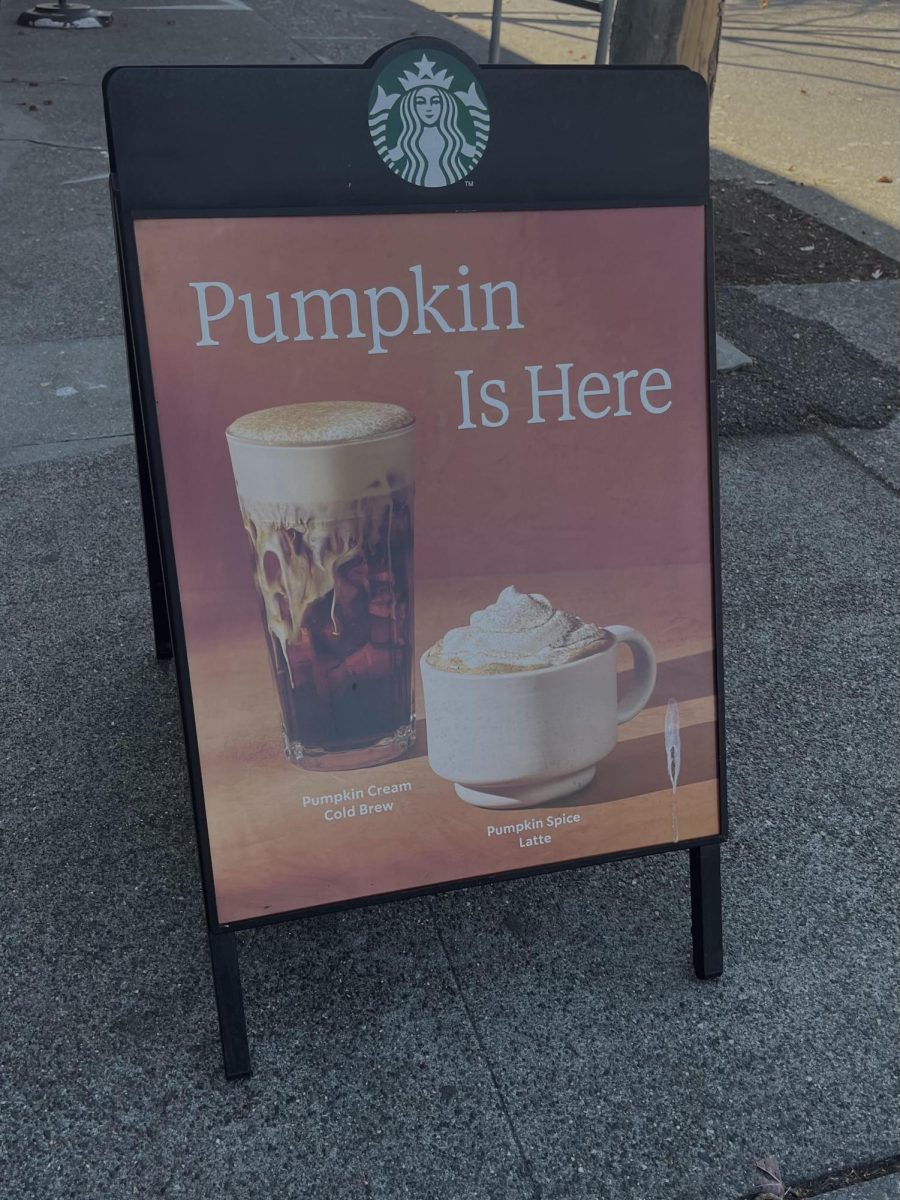Stephen King’s novel Carrie, written in 1974, launched King into a level of fame few contemporary authors have or ever will experience. King’s character of Carrie White is one of the most iconic girls in horror, and while both the book and the later movie adaptations are beloved by many, the way Carrie has been portrayed has sparked controversy.
Carrie is a classic horror novel that follows high school student Carrie White as she navigates the struggle of being an unpopular and (as the novel often mentions) quite unfortunate looking girl, living in a religiously abusive household, and all the while learning to control her budding power of telekinesis. It is moving, frightening, and very relatable for many teen girls who can see themselves in the character of Carrie White.
The immense popularity of the book led to the creation of the first film adaptation in 1976. While the story is accurate and there are many moments nearly the exact same from page to screen, there is a major problem that is often overlooked. The problem is Sissy Spacek. While Spacek is a very talented actress and is praised for her performance as Carrie, she is not an accurate portrayal of the character. Throughout King’s book he describes Carrie as chubby, with colorless hair, and bad acne. Spacek is thin with golden blond hair and clear skin. This casting is something that has raised concerns as Carrie’s appearance is crucial to her character. This choice to cast a conventionally attractive actress brings up the question: how far will Hollywood go to avoid casting an “ugly” girl.
Over the years since the first Carrie adaptation three other Carrie films have been released. The first was a sequel titled “The Rage: Carrie 2” but as it isn’t based on Stephen King’s novel it is not necessarily relevant to the conversation of casting Carrie White. “Carrie” (2002) is an interesting take on the novel as it is much more faithful to the book, including the interviews with Carrie’s peers after the events of the book. Carrie White is more accurate to the book in this adaptation, being very shy and having hair that always look a little wet. Unsurprisingly though, Angela Bettis, who was casted as Carrie, is thin, with clear skin, and quite pretty. While this movie has been praised for the surprisingly heartfelt performances and similarity to the book, the special effects are poor, and like its predecessor, Carrie white’s casting is unfortunately inaccurate.
The most recent film “Carrie” (2013) is interesting as it is a modernized version of the story that includes a cyberbullying plotline. This version has actually been praised for the casting of Chloë Grace Moretz. Moretz is by far the closest to the description of Carrie in the book, but she is still clear skinned and far from the girl King wrote about.
One of the most important moments of Carrie in all the movies and the original novel is Carrie getting ready for prom. For the first time, she is seen by her peers as more than just a weird girl and they see that she is in fact beautiful and the bullying and abuse has kept her from glowing. This is so immensely powerful especially for girls who have experienced bullying or are struggling from their own insecurity. This “reveal” that Carrie is beautiful is followed by her bullies dumping a bucket of blood onto her as a sick prank, harping back to the beginning of the story, when Carrie gets her period in the girl’s locker room and is mocked. This is the ultimate humiliation and Carrie loses control, going on a rampage with her telekinetic powers to get revenge on the students that made her life hell while also killing her abusive mother. Carrie, covered in blood and finally taking control of her powers is one of the most iconic moments in classic horror. The weird ugly girl who was the butt of every joke in a beautiful dress drenched in blood during one of the most important nights of her high school career is insanely powerful.
There are girls in Hollywood portrayed as “ugly”, but it is remarkably rare that they are more than the comic relief or the villain. Movies like “Pitch Perfect” make the concept of any girl over a size 2 being sexy the punchline of all their jokes. If Carrie didn’t stand on that prom stage being the prettiest girl in the room, even just for a moment, and was instead shown only through her bully’s eyes and portrayed as a villain or a joke instead of the deeply sympathetic character so many people know and love, she may very well have gotten a book accurate casting all the way back in 1976.



